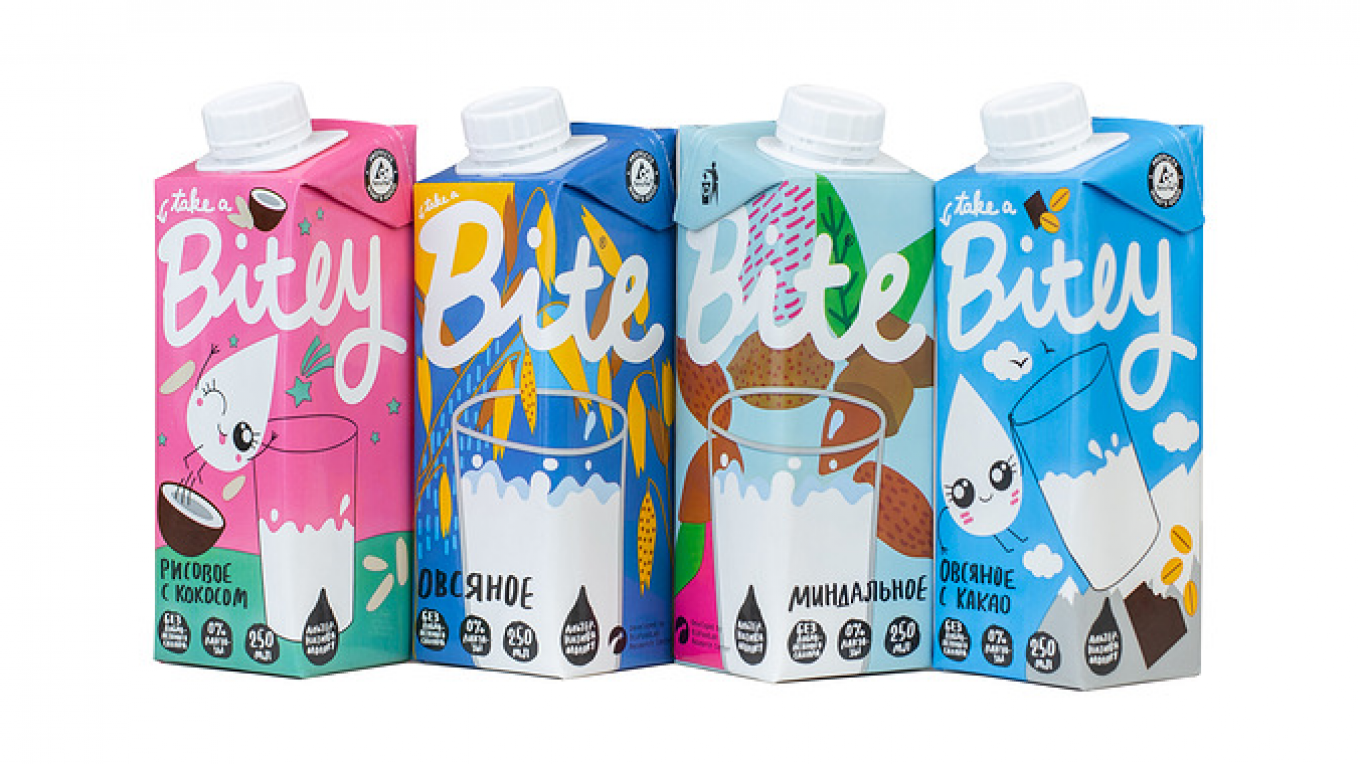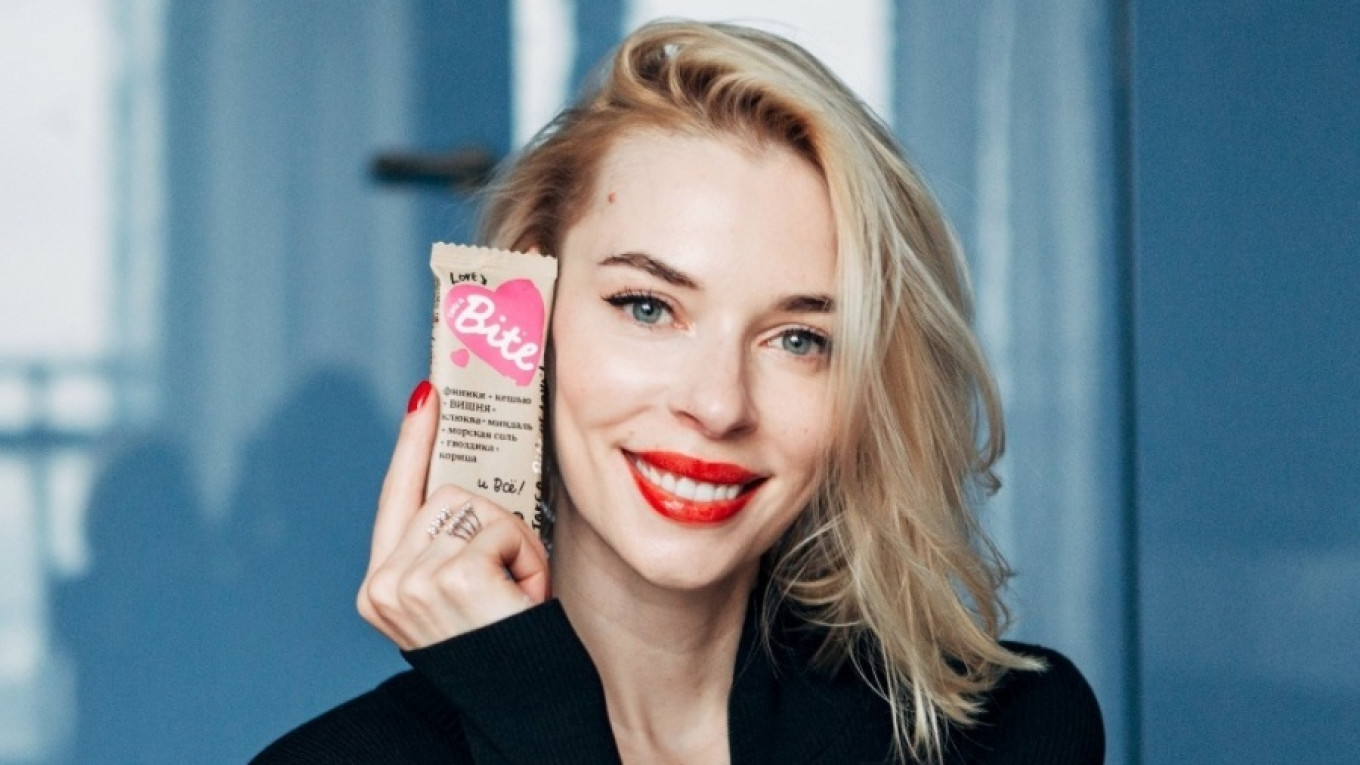Russians have been binging on health food in an effort to build up their immune systems in the hope of protecting themselves from the coronavirus.
That’s how Elena Shifrina, former model, Massachusetts Institute of Technology (MIT) alumnus and now CEO of Russia’s premier health food company BioFoodLab explains the surge in sales this year.
bne IntelliNews profiled Shifrina three years ago when BioFoodsLab was just getting going and within two years, the Russian edition of Forbes magazine had already named the firm one of most successful startups of the year. BioFoodLab, and its leading brand Bite, have come a long way since then.
Today BioFoodLab sells over 100 different products through most of the country’s leading supermarkets and is turning over 1.5 billion rubles ($20 million) a year, with revenues still growing before they shot up around 40% this year due to the pandemic.
The company has set up a research and development (R&D) arm and is constantly looking for new product lines, recently getting into meat and milk alternatives, which have been very successful. And partly thanks to what Shifrina says is the high quality of its product as well as the devaluation of the ruble, some 10% is now exported to nearby countries in the EU.
Shifrina says that BioFoodLab has many years of strong growth left in it, but eventually her goal is to launch on the stock market with an initial public offering (IPO). It is another example of the emergence of a light manufacturing industry in Russia that is being driven by the enormous size of the Russian consumer market and the fall in the value of the ruble in recent years that has made local production ever more competitive against imports from both east and west.
Pandemic impact
BioFoodLab began by producing healthy snack bars. The idea came to Shifrina in an MIT canteen, where she did a short stint as an exchange student in 2011.
“We were so busy that we had no time to eat, so we used to fill up on snack bars, but we didn't want those filled with sugar. We were looking for something that was quick and easy to eat, but at the same time good for you,” Shifrina told bne IntelliNews in a video interview from her home in Moscow.
The business grew strongly from the start. Contrary to a Russian stereotype, Russians are very concerned with the quality of their food, putting a premium on “natural” produce — a tradition instilled by generations of kitchen-gardens at countryside dachas.
The coronavirus crisis has been a boon for BioFoodLab, which pushed sales volumes up by 40-45% a month over the summer, according to Shifrina.
“People want food that supports the immune system and we can legally put on our packaging that our products are ‘healthy,’ as they contain no sugar or preservatives, but they do contain a lot of vitamins,” says Shifrina.
BioFoodLab has moved on from just making healthy snack bars and now has 113 different products — named “stock keeping units (SKUs)” in the industry. That gives the company some real clout with the supermarket chains.
“If we only had five SKUs then the supermarkets would not deal with us directly and would tell us to go via a distributor. But that eats up 15-30% of your margin,” Shifrina said. “We have from the beginning wanted to work directly with the retailers.”
This relationship is coming into its own as BioFoodLab now works with all the biggest retail players. As bne IntelliNews has reported, Russian retail is going through its own parallel revolution, driven by a digitization that has also been catalyzed by the coronavirus pandemic. Sales in the food sector in general have been booming at the biggest companies, even if overall retail sector turnover has been contracting.
Shifrina said demand has been so strong, supermarkets didn’t need to offer traditional discounts for new product lines.
“The supermarkets cancelled all the discounts. The products were selling so well that there was no need to discount it to get people to try it. The demand for healthy food was so high that customers were buying them on the strength of that promise alone.”
Some parts of BioFoodLab’s business were hurt by the lockdown rolled out across Russia at the end of March. Just under a third of its products were sold through cafes and kiosks, most of which were closed for months, but Shifrina says that the boost in supermarket sales and growing online orders more than offset the sales fall in cafes.
Alternative meat and milk
Shifrina has been funding growth from retained earnings and a 14% stake she sold in 2017 to create some working capital as a buffer to the inevitable shocks an emerging market like Russia suffers from. Other than that she has taken on no other outside investment or bank loans.
The company now has a 25% profit margin, she said. “But actually we experiment a lot on developing new products, so the actual profit margin is more like 15-20%.”
Shifrina set up an R&D center and hired technicians to develop new products in keeping with the company’s philosophy of producing extremely healthy food. The newest addition has been a line of meat and milk alternatives — a strategic decision, Shifrina said, to ensure her products make it into supermarket fridges, which see more traffic than the shelves stocking dry foods.
Some of the ingredients for these new products can be sourced in Russia, but much of it has to be imported from BioFoodLab’s partners in Spain and Germany. Russia has walnuts, but not almonds or coconuts for alternative milks, for instance.

Selling health foods to Russians, who are not famous for maintaining a good diet, is actually easier than it may first appear, Shifrina said. Especially since as the middle classes expand, people are busier and have less time to grow their own food.
During the 1990s half of all potatoes grown in Russia were from dacha gardens. Now, consumers are prepared to buy what they used to grow.
At the same time, Shifrina says market research shows there is a global trend towards vegetarianism, which is also happening in Russia.
“The new young generation don't want to eat meat. They worry about the environment. And it is trendy. It’s the biggest trend in the world,” says Shifrina. “A study found that by 2035 half the world’s population will be vegetarian and the same thing is going on here in Russia.”
Health is also a factor. Russian men over the 45 have a 55% higher chance of falling prey to diabetes or cardiovascular disease, as they eat too much fat and sugar, says Shifrina. Another study found that 90% of Russian women are not getting enough protein and 85% take in less iron than they should.
So BioFoodLab has added these elements to their products that are popular with women. Likewise, the company is producing a snack bar aimed at children that is gluten- and sugar-free. These have been a big hit with mothers in the Scandinavian countries, where there is no similar product on the market.
Innovations like these — combined with the high quality, pleasant taste, plus the competitive advantages from the devalued ruble — mean that BioFoodLab is already exporting 10% of its production to other nearby EU countries, Shifrina said. She expects the export part of the business to continue growing steadily, but she is still busy building up product lines and filling out the corners of the Russian market.
“When we launched, we conceived of the Bite bars as a premium product, but we have found that they sell just as well in the regions and not just in the richer, urban markets of Moscow and St. Petersburg. You can find Bite bars all over the country now.”
BioFoodLab has ticked a lot of boxes that match changing Russian eating habits and the new interest in living a healthy lifestyle that has already been emerging for many years.
And the success and fast growth of BioFoodLab has already piqued the interest of the multinational food producing giants. Shifrina has had calls and meetings with the likes of Mars and Nestle, but said she doesn't have much interest in selling out to a strategic company in the short term.
“We have a lot of growing left to do. We are nowhere near finished. But eventually I would like to IPO. That is my dream.”
This article first appeared on bne IntelliNews. Follow on Twitter @bneIntelliNews.
A Message from The Moscow Times:
Dear readers,
We are facing unprecedented challenges. Russia's Prosecutor General's Office has designated The Moscow Times as an "undesirable" organization, criminalizing our work and putting our staff at risk of prosecution. This follows our earlier unjust labeling as a "foreign agent."
These actions are direct attempts to silence independent journalism in Russia. The authorities claim our work "discredits the decisions of the Russian leadership." We see things differently: we strive to provide accurate, unbiased reporting on Russia.
We, the journalists of The Moscow Times, refuse to be silenced. But to continue our work, we need your help.
Your support, no matter how small, makes a world of difference. If you can, please support us monthly starting from just $2. It's quick to set up, and every contribution makes a significant impact.
By supporting The Moscow Times, you're defending open, independent journalism in the face of repression. Thank you for standing with us.
Remind me later.







